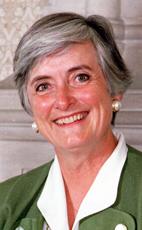Mr. Speaker, I would like to report on my visit to Eritrea, Ethiopia and Egypt in September. My participation there preceded the Cairo Population and Development Conference.
Eritrea and Ethiopia are countries in which Canada directly, and indirectly through our non-government organizations, has a long and important involvement most recently through periods of drought and conflict. Egypt as you well know is a crucial country in the politics of the Middle East.
Let me begin my comments with reflections on Eritrea and Ethiopia. These two countries were cut from Canada's bilateral assistance program by the previous government. By failing to emphasize that humanitarian assistance was exempt from the cut, Canada appeared to be abandoning Eritrea and Ethiopia just when peace was finally being realized after 30 years of civil war.
My visit provided an opportunity to convey several important messages, the first being that Canada remains committed to maintaining bilateral relationships, if not assistance programs, with both countries. The second message was that while future bilateral assistance and partnership programs will await the outcome of the foreign policy review and be a function of our overall budgetary position, we will continue to contribute to the efforts of these countries to rebuild.
By rebuild, we mean two things. The first is to help them make the shift from relief to recovery. The second is to help them begin building structures and institutions such as the constitution by which they will govern themselves more democratically and we hope more peacefully.
Within the February budgetary allocations we have been able to provide $18 million in food security to Ethiopia and $7 million to Eritrea this year. In addition we have provided $400,000 in assistance to Eritrean refugees returning from the Sudan. We have established a $500,000 fund for democratic development activities in each country.
While there I applauded the efforts of the Ethiopians and Eritreans to promote regional peace and stability, certainly not an easy task. Both countries have been prominent in the Sudan peace talks which Canada is supporting. My meetings with the secretary general of the OAU, Salim Salim, the president of Ethiopia, Meles Zenawi, and Eritrea's minister of foreign affairs, Petros Solomon, touched on this issue.
I want to inform my colleagues that much more attention will be needed by western countries to support Africa's own efforts to bring peace to the horn of Africa. Within our budgetary and human resources limitations, Canada will continue to seek ways to facilitate this peace process as well as to help refugees in the region.
Now for Egypt, a country with one foot in Africa and another in Asia. Over the past decade Egypt has taken on the role of bridge builder in middle eastern affairs. Its place on the frontlines has drawn it into many conflicts and the government is currently struggling to liberalize the economy while dealing with sporadic acts of terrorism. Rural Egypt where I also had the opportunity to travel is close to Africa in its poverty and in the severity of its ecological crisis.
Canada is helping the Egyptians deal with their most precious resource, the River Nile. I journeyed to Qanater to see the strategic research unit on the second cataract of the Nile north of Cairo. This is only one project in which Canada is involved bilaterally but from conversations with senior Egyptian officials, one that is very much appreciated.
In keeping with a longstanding commitment to help women in Egypt, Canada sponsors a range of projects. A creative effort is being undertaken in the Qena region in southern Egypt by the Foundation for International Training. It is trying to open the banking system of the country to women who are small scale entrepreneurs. In tiny workshops, in back rooms of houses and even in courtyards women have started small enterprises with backing from CIDA through the Foundation for International Training. The results to date not surprisingly for those of us familiar with the Grameen Bank, are a very high repayment record and a rapidly growing clientele.
It was in these crowded homes and workshops that the hidden tragedy of rural Africa was revealed: the number of young girls who are not in school. UNICEF statistics tell us that 80 per cent of girl children in Egypt reach at least grade 5 in primary school. For Ethiopia the figure is only 10 per cent.
On my last day in Egypt I announced on behalf of the Minister of Foreign Affairs that Canada is contributing $14.9 million to support primary education for girls in 15 African countries, to be channelled through UNICEF. I believe the education of young girls in Africa is the touchstone in a brighter future for the whole population. There is growing consensus that donor dollars spent on education of young girls has a positive impact not only on their lives, but on their families and on their communities. It was my privilege to be the bearer of this message of support to Africa.

